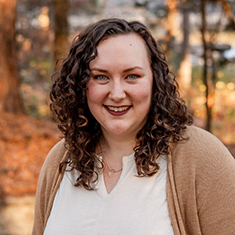Despite being illegal, polygamous marriage remains alive and well in Ethiopia, and that poses some obvious challenges when it comes to land rights. Statistics from 2011 reveal that 11 percent of married women in Ethiopia share a husband with one or two other wives. Polygamy affects women’s rights to property and income because it is unclear whose rights take precedence under the law when the husband becomes ill or passes away. Unfortunately, federal and regional land proclamations in Ethiopia don’t address the registration of polygamous families.
The U.K. Department for International Development’s Land Investment for Transformation (LIFT) programme consistently runs up against this legal grey area in its work to enhance land rights in rural Ethiopia. But based on our research into the topic, we have come up with a couple of suggestions to clarify and advance women’s rights in cases of plural marriage.

Different regions of the country handle the registration of polygamous families in different ways: some include all the wives in one certificate; others register wives separately. Also, registration of land holdings is typically led by the husband, who may treat one wife better than others, leaving co-wives at a legal disadvantage. A husband who favors one wife over another can encourage non-eligible wives to register, denying those who are eligible. Many co-wives may not even know whether they are listed as a joint land owner or the extent of their entitlement to land. In regions where photos of co-wives are required for land registration, co-wives often think that this photo ensures joint ownership of land and hence that they do not need to be involved in subsequent stages of land certification.
Other complicated situations include instances where a parcel of land is registered in the name of the first wife, but in practice a co-wife actually cultivates and benefits from the produce. This state of affairs poses a problem upon division of the property, as the land certificate does not reflect the user, and of course a divorce or death of one of the wives or the husband naturally triggers disputes around the division of property and inheritance.
Land differs by nature from other kinds of property—perhaps especially in Ethiopia. The country’s land policy posits that land is not owned by individuals but by the State and the people of Ethiopia. When wives in polygamous marriages request land, therefore, it is a demand they are making as a citizen, not merely as a spouse. It is well documented that recognizing and formalising women’s land rights is a key step toward women’s economic and social advancement, as land is the most important social and economic asset in rural Ethiopia. These rights increase women’s economic empowerment and status in the household and community, and help to ensure the health and wellbeing of children. This right should therefore be granted equally, to include women in polygamous households.
What to Do?
The LIFT team is urging Ethiopian policymakers to address this situation and help close a debilitating gap in land governance. Based on our research, we recommend that the following steps be taken:
- Endorse the articles on polygamous wives’ registration in the draft federal land proclamation that is currently under review. A study conducted by LIFT identified seven ways to register the land use rights of women in polygamous unions, of which we recommend two, based on their relative advantage in providing better security for all members in a polygamous household while minimising the risk of conflict between children and co-wives (see box). The decision regarding which option to adopt and implement would best be decided by the respective regions.
- Align procedures for polygamous households’ land registration with the binding judgement made by the Federal Supreme Court of Cassation, which ruled that although polygamy is illegal, its prevalence in Ethiopia means that all property should be divided equally between the husband and wives. Land certification should conform to this decision.
- Align procedures for polygamous households’ land registration with Article 34/4 of the Constitution, which has provision for polygamous marriages on cultural or religious grounds—despite prohibition by the Ethiopian criminal and family codes.
- Integrate into the design of land-related programmes a provision to support the registration of women’s land use rights in both monogamous and polygamous households.
Two Options Proposed
Option 1: Husband registers his share of the land with one wife. The rest of the wives register their own shares by themselves. First, the land is divided into equal parts, according to the number of wives (and includes the husband). The husband then chooses one wife to register with. The rest of the shares are owned only by the wives. For example, if a husband has three wives, the land is divided by four. The husband and one wife combine their shares to create a joint share. Each of the other wives has sole rights to a ¼ of the land. This option is thought to discourage polygamy, particularly because if the husband decides to take yet another wife, the new wife would become the preferred wife and the husband’s land share would shrink further.
Option 2: All wives and the husband register separately. Every wife and the husband get an individual, equal share in their own names. In this option, everyone is separate and each person has rights to his or her own equal share of the land size. This option works when the husband has difficulty in choosing one of the wives as his joint landholder or when rivalry exists among the wives wishing to register with the husband as the joint holder.
Polygamy is a challenging topic with cultural implications far beyond the land sector. But equally, LIFT’s work to enhance clarity, consistency, and understanding around women’s land rights in plural marriages offers an opportunity to achieve far-reaching impact. If we can embed good governance practice in all aspects of land rights registration, we will materially advance women’s land rights—with all that implies for women’s social and economic empowerment.




